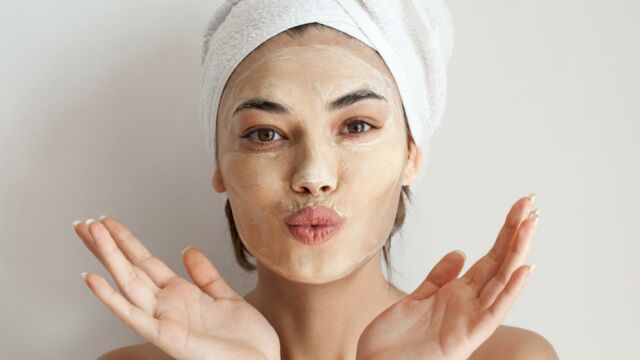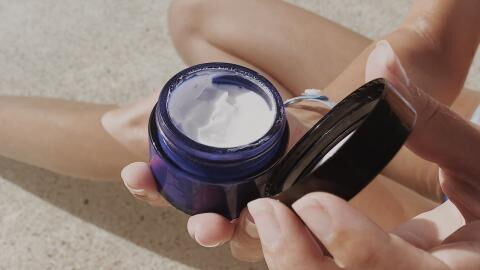The skincare world has been flooded with thousands of products, and admittedly, while nothing is more satisfying than trying new serums and creams, the oversaturation of choice sometimes makes it hard to narrow down precisely what products and practices will be good for our skin.
Discover our latest podcast
For the most part, the best skincare routine is one that’s realistic and achievable for you and targets your skin concerns. However, no matter what products you use, there are some everyday habits that could be undoing all your hard work and even ageing your skin faster.
1. Not wearing SPF
We’ve said it before, and we’ll say it again, SPF is the most essential product in your skincare routine. While many people believe you may only need to wear sunscreen in the summer, UV rays are present all year round, rain or shine, and can even penetrate through windows.
These UV rays can cause free radical damage in the skin, damaging precious collagen supplies, resulting in fine lines and wrinkles. Not to mention some anti-ageing and acne products can be sun sensitising, meaning they can cause photoaging if exposed to the sun’s rays.
But, don’t just rely on the SPF15 of your favourite foundation or tinted moisturiser. Instead, try using an SPF of at least 30 every day and reapplying it every two to four hours.
2. Skipping your moisturiser
If you often saved your moisturiser solely for dry winter skin or thought it would only worsen your oily skin, you may want to think again. Moisturiser is one of the key components of a good skincare routine. Many moisturisers are packed full of products that can boost your skin’s moisture barrier, protecting your skin from damage and dehydration and keeping your skin looking youthful.
Oily skin can also result from dehydration as the skin will often increase the production of oils to compensate for the lack of moisture. Dehydrated skin is often sensitive and vulnerable to irritation and ageing, making moisturiser all the more crucial.
3. Using makeup wipes
Makeup wipes seem like the easy, sensible way to take off your makeup at the end of the day, but the harsh chemicals and excessive rubbing can leave the skin sensitive, dry and prone to irritation and ageing. Not to mention makeup wipes don’t cleanse often leave trace amounts of makeup lingering on your face, which can then go on to trap dirt and pollutants inside the pores.
If you’re a regular makeup wearer, it might be worth investing in a makeup remover that won’t jeopardise your skin like an oil or balm cleanser. These easy-to-use cleansers effortlessly melt off your makeup without the need for any rubbing, tugging or dryness. Just don’t forget to follow them up with your regular cleanser!
4. Ignoring your neck and decolletage
The neck and decolletage are just as exposed to the sun as your face. Not carrying your skincare down to your chest could see these parts of your body experience sun damage and ageing.
5. Over-exfoliating
It’s no shock that physical scrubs can cause redness, irritation and create microtears in the skin, but overuse of chemical exfoliants can cause just as much damage. Overuse of chemical exfoliants can weaken the skin’s moisture barrier, and as you probably guessed, this leads to irritation, dehydration, dryness and ultimately wrinkles. Celebrity facialist Lisa Harris told WhoWhatWear:
Using harsh exfoliators every day breaks down your natural lipid barrier that helps to naturally hydrate the upper layers of the epidermis. This can lead to thread veins, scarring and thinning of the skin.
To avoid damaging your skin with chemical exfoliants, try sticking to gentle ingredients like glycolic and lactic acid and only exfoliate once or twice per week.
6. Extreme water temperatures
It may feel good in the moment, but washing your face in piping hot water can strip the skin of its natural oils.This may leave your face feeling tight and dry and can contribute to dehydration. This stripped-back skin will then continue to overproduce sebum, ultimately leaving your face shiny and oily.
Joshua Zeichner, M.D., director of cosmetic and clinical research in dermatology at Mount Sinai Hospital in New York City explained to SELF:
Extreme temperatures, such as hot, steamy showers or hot water, can cause dilation of blood vessels and breakage of delicate tissue. Further, the hot water naturally strips skin of the necessary oil barrier that helps maintain skin integrity.















